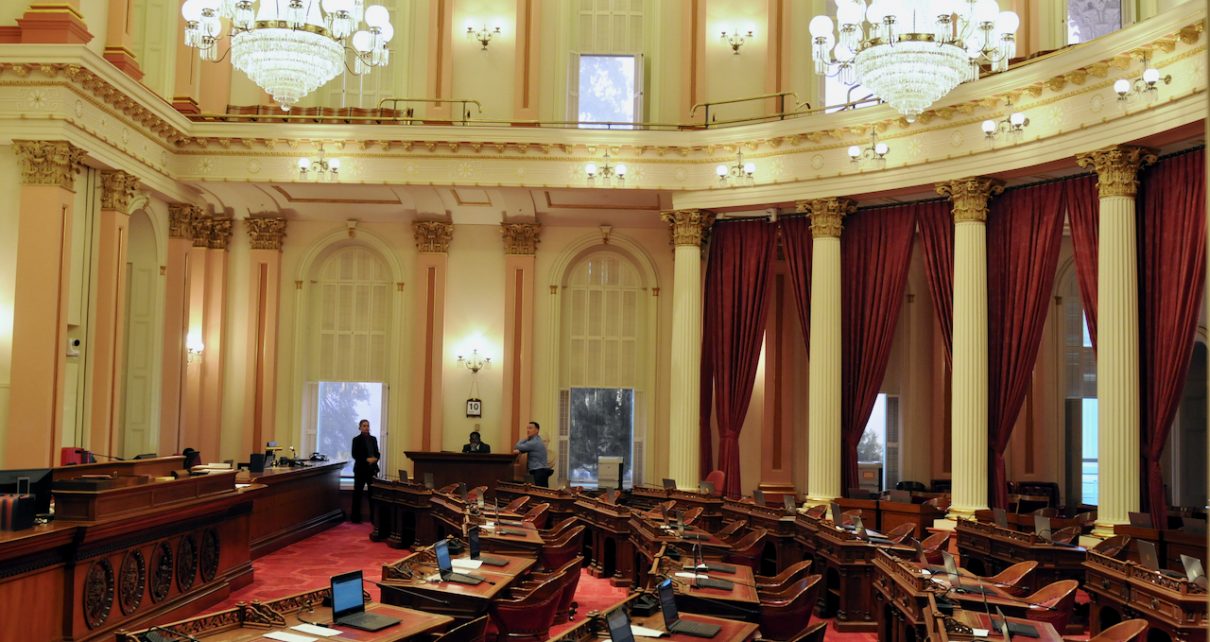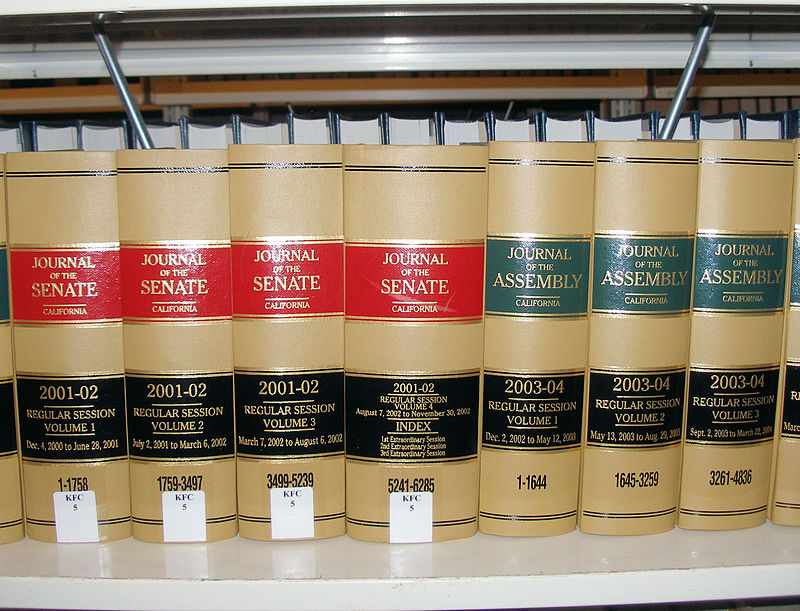
California Senate Chambers. (Photo: Kevin Sanders for California Globe)
Other Ways to Defeat Legislation
A committee can pass the bill, hold the bill, or defeat the bill
By Chris Micheli, February 3, 2020 6:07 am
In the California Legislature, there are several methods that can be used to defeat or postpone a bill for further consideration. These methods are in addition to simply voting no on a measure so that it fails passage. However, for policy, fiscal or political reasons, legislators may not want to vote against a colleague’s bills. As a result, there are only means by which a measure can be defeated in an overt or covert way.
Floor Actions
In the Legislature, if an author chooses not to take up his or her measure pending that day on the Floor, the presiding officer will determine one of the following:
- “Pass and Retain” – this means that a bill stays on the Daily File until the next legislative day without penalty. If a Member wishes to wait an additional day before taking up a bill, the Member may ask the House for unanimous consent to pass and retain his or her bill on File until the next legislative day.
- “Pass on File” – this means when the House refuses to “Pass and Retain” a measure on the agenda, it is “Passed on File.” Although the bill remains on the agenda for the next legislative day, if it is not taken-up the second time, it will automatically be placed on the inactive file. Note that this rule is not always enforced in both houses.
- “Pass Temporarily” – this means a measure was temporarily skipped on the agenda. If the bill’s author does not take-up the measure by the end of the day, it may be penalized or retain its place on the Daily File by unanimous consent.
Inactive File on the Floor
Whenever a bill has been passed twice on the third reading file on two successive legislative days, the bill is placed upon a special file known as the inactive file. A bill also may be placed on the inactive file at the request of the measure’s author. When a bill has been placed on the inactive file, it may be returned to the third reading file by request of the author. Notice of the request to return the bill to the third reading file must be published one day in advance in the Assembly or Senate Daily File. The bill, when returned to the third reading file, is then placed at the end of the third reading file for further consideration.
Committee Actions
A committee can pass the bill, hold the bill, or defeat the bill. However, there are subtle differences when bills are held in committee as set forth below:
- Held in Committee – this means a bill failed to get the sufficient number of votes to pass out of the committee.
- Held under Submission – this means an action taken by a committee when a bill is heard in committee and there is an indication that the author and the committee members want to work on or discuss the bill further, but there is no motion for the bill to progress out of committee. This does not preclude the bill from being set for another hearing.
- Held without Recommendation – this means an action taken by a committee when a bill is heard in committee and there is no indication that the committee wants the bill to progress out of committee. There is no motion for the bill to get out of committee. This does not preclude the bill from being set for another hearing.
- Interim Study – this means the assignment of the subject matter of a bill to the appropriate committee for study during the interim recess.
- Put Over – this means when action is delayed on a legislative measure until a future date without jeopardy to the measure.
Interim Study
Whenever it is the decision of a standing committee that a bill referred to that committee is not to be given a do-pass recommendation, but the subject matter of the bill should be referred for additional study by the House, then that standing committee will retain the bill in its possession and report its recommendation to the full Assembly or Senate that the subject matter of the bill is to be referred to the Committee on Rules for that committee’s assignment of the subject matter to an appropriate committee for further study during the fall interim period.
In all of these instances, a measure can stop in the midst of the legislative process, either due to action or inaction by the measure’s author or by other legislators. In some instances, there are merely technical differences, but there are various methods that readers should be aware of when participating in the California legislative process.
- Endangered Species Regulation - February 19, 2026
- Renewal of Judgments - February 18, 2026
- Hearings on Third-party Claims - February 18, 2026




